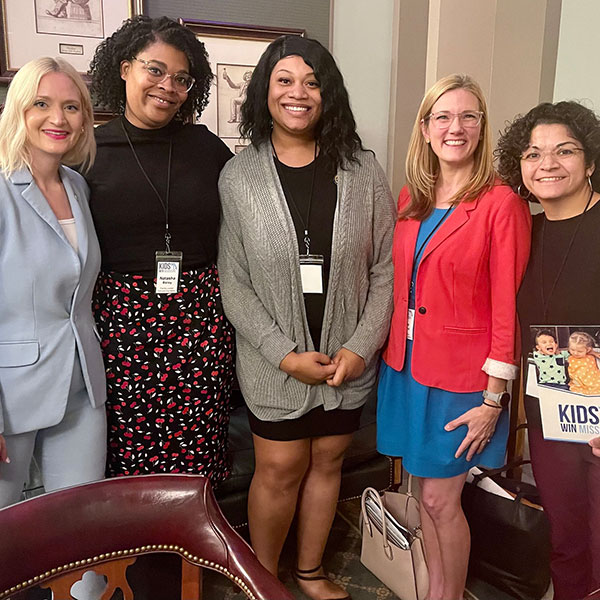On the Road to a Stronger Child Care System for Missouri
“This grant is an opportunity to engage and cultivate more parent leaders in our efforts to build a child care system that works better for all Missouri kids and families,” says Brian Schmidt, Executive Director of Kids Win Missouri. The organization was recently awarded a three-year, $150,000 Think Big for Kids grant from YouthBridge. Schmidt says YouthBridge has also worked over the last year to open doors to other funders and raise awareness of “what we’re trying to accomplish in improving the wellbeing of children in this state.”
Kids Win Missouri is a coalition of organizations and individuals advocating for policies that support the health, education, safety and development of children and their families, especially those who are at risk because of poverty, abuse, neglect, racial inequities or other risk factors. Since its formation in 2013, Kids Win Missouri has helped advance policies and solutions to improve support for early childhood programs, including additional state and federal funding, and the creation of a consolidated Office of Early Childhood that merged three previously fragmented state departments.
In 2021, Kids Win Missouri released its Roadmap for Child Care, following several weeks of research and discussions by a workgroup of 60+ parents, partners, educators, program owners and other leaders. The roadmap outlines strategies for the state and local communities to build high-quality, comprehensive and equitable child care, with an emphasis on early childcare and education.
“The U.S. ranks last in PreK per child spending and yet research shows that the likelihood of college attendance, success in employment and health outcomes all improve for individuals who receive quality care and education from birth through age five. What happens early in life truly lasts a lifetime,” says Schmidt. “We’re trying to bridge this gap and make early child care a priority.”
The lack of appropriate funding, he says, impacts providers’ ability to recruit and retain quality early child care professionals. “They’re operating on razor-thin margins, which were further strained by the pandemic, so in the end, the burden lands on parents who have fewer options and pay higher fees.”
The roadmap has chosen a “four-lane” approach to its short- and long-term priorities: 1) Increasing access and affordability for all families; 2) Advancing the early child care and education profession; 3) Reforming child care financing and funding as a “public good;” and 4) Building more innovative and effective business models. The first step is breaking down the document into workable policy pieces, says Schmidt.
“Fortunately, COVID-19 pandemic has brought a new interest in child care from the business, political and educational sectors and we’ve been able to engage them in this process,” he says. “Our focus now is on pulling more parents in to connect with policy makers and share their stories, and to help lead the change that will benefit our children for generations to come.”
If you would like to donate or have any questions about this organization, please contact Allison McDonald.
